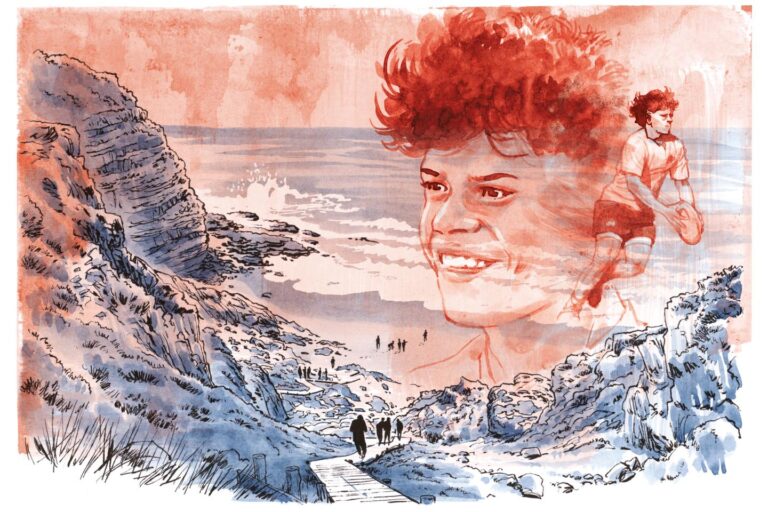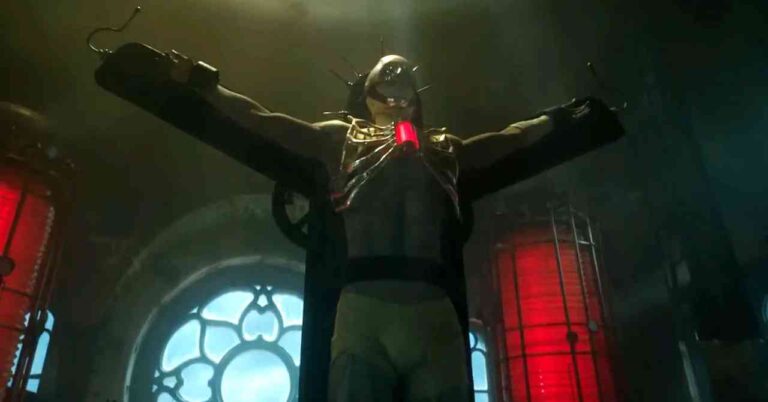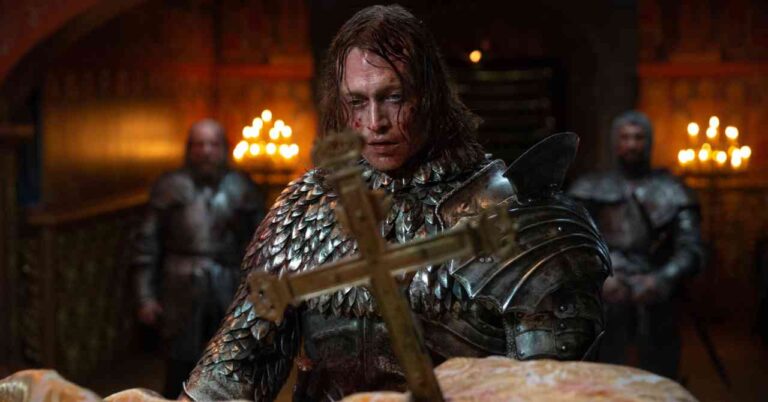28 years later: Danny Boyle brilliantly reinvents his zombie apocalypse [critique]
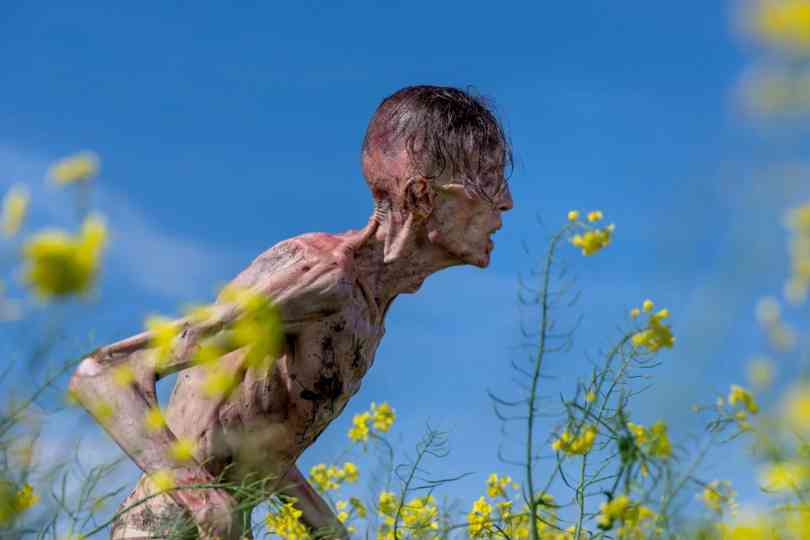
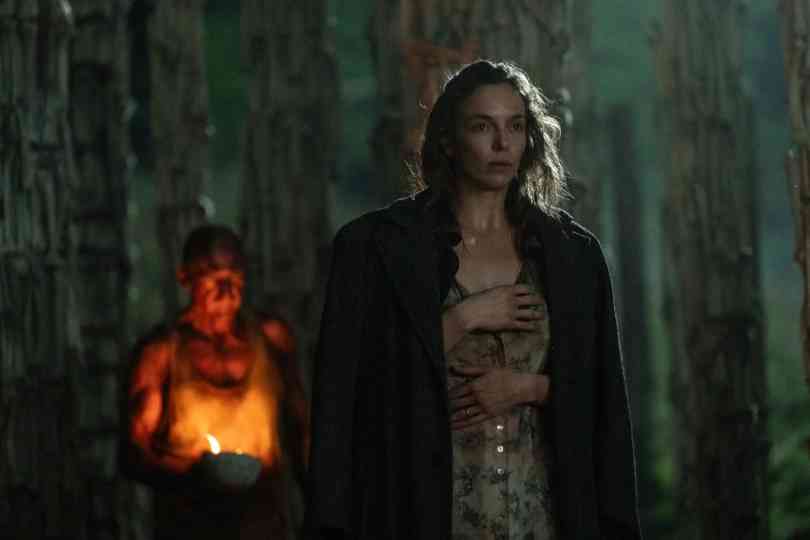
The Boyle-Garland duo returns with an unexpected suite which transforms the franchise in post-apocalyptic epic.
Twenty-three years after shaking the cinema of zombies with 28 days later, Danny Boyle et Alex Garland Sign a smashing return. More than a nostalgic suite, a reinvention attempt that transforms the infected universe into a mythological playground.
The story begins on Lindisfarne, an isolated island on which a community of survivors has rebuilt a craft society. Spike (Alfie Williamsreal revelation of the film), 12, has never known something other than this island connected to the continent by a road practicable at low tide. When his father Jamie (Aaron Taylor-Johnson) takes her for the first time on the British continent, now the world’s quarantine area, the boy discovers a world where the rage virus continues to rage.
This Britain cut off from the world becomes a great exploration field for Boyle and Garland. This first part is clearly imagined as an allegory of Brexit: post-apocalyptic British isolation resonates with contemporary identity questions. The island society has been rebuilt from a medieval aesthetic and Boyle Strie its film of extracts from old films replaying the glorious Middle Ages and thus questioning this nostalgia of the good old days which obsess certain britings.

But things have changed. In the world of franchise too. Zombies in particular. Infected are no longer simple transformed and vomiting humans from blood: we now distinguish “rapids”, “slow”, and especially “alphas” – naked mutants, stronger and ruthless, capable of tearing a spine of a gesture. Boyle films these horrors with enjoyable sadism, multiplying the camera angles during the massacres, creating breathtaking action sequences punctuated by the fantastic soundtrack of the Young Fathers.
The director draws from his usual arsenal while renewing his approach. Partly turned on iPhone 15 pro max (nod to cheap DV cameras of the first film), 28 years later Alternate ultra-dynamic visceral sequences and almost mystical contemplative moments and everything transpires the punk energy of Boyle (which does not hesitate to redo resonate “Lust for Life” of Iggy Pop).

This is where we have to talk about her casting. Aaron Taylor-Johnson delivers a performance of remarkable maturity as a protective father with troubled motivations. Jodie Comer (Killing Eve et The last duel) impresses in a difficult role of sick mother losing foot with reality. But it is Ralph Fiennes Who steals the show in mysterious Dr. Kelson, character clearly modeled on the Kurtz ofApocalypse Now And whose appearance turns the film to turn towards something completely unexpected.
And then there is Alfie Williams who carries this family drama and this post-Sapo coming-of to his shoulders. Through his eyes, Boyle explores the transmission of traumas and especially the relationship that can be maintained with myths. 28 years later Questions the stories that we are raking to survive, and in this has a small Millerian perfume (that of Mad Max in particular) quite striking.

The limits of an overflowing narrative ambition
If the first half of the film turns out to be electrifying, the second part sometimes struggles to maintain this tension. The plot zigzague, disperses in multiple directions without always finding its narrative coherence. Some developments would have deserved more deepening, in particular the Arc de Jodie Comer, shiny but under-exploited, or the intriguing presence of the character of Ralph Fiennes. And the film, designed as the first part of a new trilogy, ends with a cliffhanger that will frustrate certain spectators.
Despite these faults, 28 years later Succeeds his bet: reinvent a cult franchise without betraying his DNA. Boyle and Garland prove that there are still things to say in post-apocalyptic cinema, even in the era of The Last of Us.
Both pure horrific entertainment and socio -political reflection, 28 years later Questions our collective fears and our relationship to civilization, while delivering enjoyable action sequences.
The electrifying shadow of Alex Garland

![28 years later: Danny Boyle brilliantly reinvents his zombie apocalypse [critique]](https://gruntstuff.com/wp-content/uploads/2025/06/28-years-later-Danny-Boyle-brilliantly-reinvents-his-zombie-apocalypse.jpg)
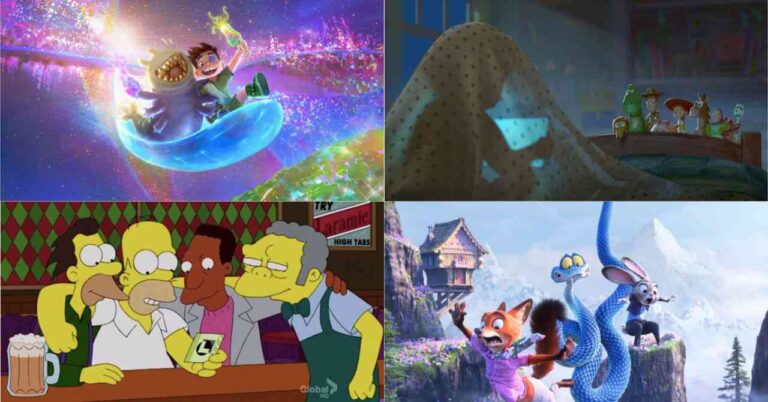
![Jurassic World Renaissance: A good youthful cure [critique]](https://gruntstuff.com/wp-content/uploads/2025/07/Jurassic-World-Renaissance-A-good-youthful-cure-critique-768x402.jpg)

